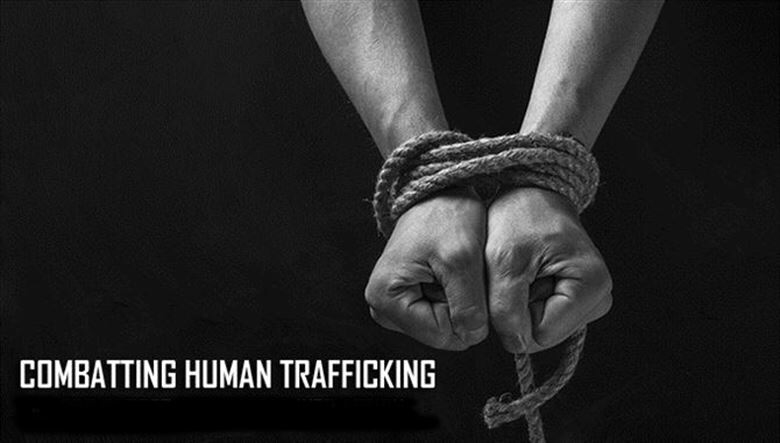Super Bowl Slavery: Human trafficking and why we need to stay alert
“Human trafficking isn’t just a one-stop shop,” says Jonathan L Beam, a retired criminal investigation police officer, “almost any time there is money involved [in crime], there is sex slavery.”
Around forty-million people are victims of human trafficking each year, making about $150 billion. Especially now, around the Super Bowl, trafficking is at one of its highest rates. According to Anna Giaritelli, a reporter at the Washington Examiner, “ICE and partner law enforcement agencies arrested more than 160 people in the days leading up to and after last year’s National Football League championship game in Atlanta. More than two dozen of those arrested were human traffickers, and 34 had tried to have sex with minors.” From 2014 to 2018, there were 440 child sex trafficking cases confirmed in the state of Maryland, making it one of the most high-ranking states in the nation.
The most common places of trafficking are hidden in near-sight. While people typically associate it with street crime, the most common places are private homes, restaurants, and construction. Sweatshops, fields, and the entertainment industry include places where it can occur.
Both men and women can be trafficked. Women are the most common, but men are harder to remove from sex trafficking circles, including at a younger age when they can be abused by family or administrative authorities.
Trafficking is not the easiest thing to come forward about. People can feel ashamed or embarrassed. Programs such as Montgomery County Health and Human Services Victim Assistance and Sexual Assault Program help victims step forward. “Victims come to us directly,” says Cara Iadarola LCPC, LCPAT, “we also have a team of outreach volunteers who work with the forensics unit in the hospital. They accompany the victims and provide emotional support and give information about our program. But in the end we always give them a call.”
If you believe that someone you know is being trafficked, here are a few red flags:
- They cannot speak for themselves and have a third-party.
- They do not seem to care about hygiene.
- They are constantly paranoid during conversations (this includes lack of eye contact, fast speech, and stuttering.)
- Very few personal belongings.
Even in our lives, we can see how much of an impact this subject has. On this reporter’s social media account, a poll was posted asking the question, “do you know anyone personally that has been a victim of rape, sexual assault or domestic violence?” Fifty-eight percent of viewers said yes, while forty-three percent said no. The age range was from around 15 to 18 years old.
If you or someone you are concerned for is being trafficked, abused, or sexually assaulted please call the National Human Trafficking Hotline (888)-373-7888.
Sources:
https://baltimore.cbslocal.com/2019/11/18/recognize-the-signs-of-human-trafficking/
https://www.themuse.com/advice/human-trafficking-the-myths-and-the-realities


